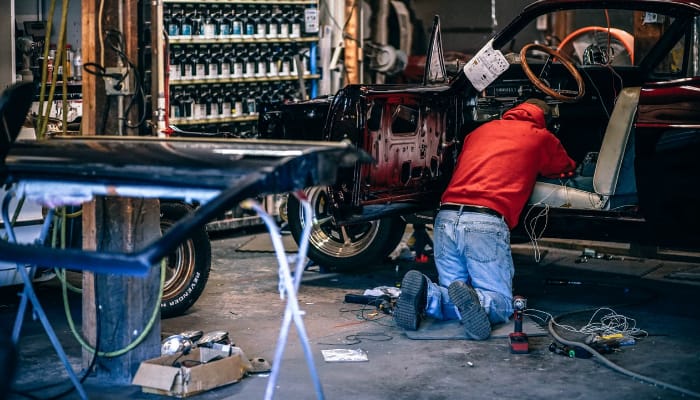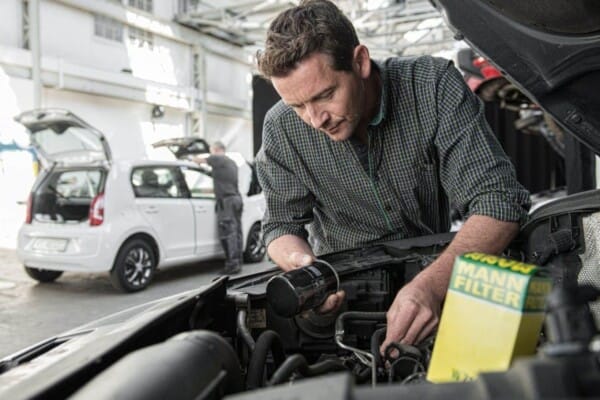Like any other property of humans, automobiles should undergo general cleaning procedures, collectively known as a tune-up. However, when we say tune-up, it is more on replacing what needs to be replaced. Still, the result will be a cleaner vehicle in the sense that several components are brand-new. Since the term “tune-up” is actually a complicated idea, let’s learn more about this maintenance procedure until we finally reach the answers on how often should car owners get a tune-up.
What Exactly Is a Tune-Up?
The original purpose of a tune-up was to replace spark plugs and distributor points. Other components that may undergo replacement were the rotor, cap, fuel, and air filters. Adjustments may also be required such as ignition timing and point gap. Tune-up was really pushed years ago for every 12,000 to 20,000 miles.
Nowadays, however, there are no more distributor points in modern cars. Spark plugs are not even popular anymore. Lastly, adjustments can already be accomplished by computers which does not really represent an actual tune-up.
The real essence of a tune-up is almost obsolete for manufacturers do not even indicate tune-ups for maintenance. Instead, the manufacturers prefer to focus on specific components.
To avoid disappointing yourself after a tune-up, you should know that this maintenance process does not necessarily fix car issues. In case you have not noticed yet, tune-ups are only limited to a few components.
How Often Should I Get a Tune Up?
While previous decades required tune-up for such a low mileage of only 12,000 to 20,000 miles, car owners in this modern generation are way luckier. Since today’s technology makes everything more convenient, fewer tune-ups are necessary since the recommended mileage nowadays is already from 30,000 to 100,000 miles – depending on your automobile. In short, the money you pay for a tune-up after – let’s say – 60,000 miles was already good for five to six tune-ups in the past.
To be more specific about the frequency of getting a tune-up based on mileage, PCV valves, rotors, caps and fuel filters are recommended to be replaced for every 30,000 to 50,000 miles. Meanwhile, spark plug wires can go as far as 60,000 miles or more.
Just a friendly reminder when you finally need to visit a repair shop for a tune-up: make sure to ask what is included in the shop’s “package.” Different repair shops have different standards regarding tune-up. One shop may be inadequate, just replacing the spark plugs and other small components, while the other can provide you a complete service just like the old days with extra features such as testing the car’s electronic program.
Can I Do a Tune-Up in my Own Garage?
If you are adept at DIY auto work, why not? In fact, we are giving you common to-do lists for every mileage interval. However, let’s include general maintenance for practicality:

3,000 Miles
Your focus here is more on filters, fluids, and tires. You may replace oil as well as the oil filter. When you spot issues on the air filter, replace it. You should also inspect all kinds of fluids in the car and the tire pressure. If necessary, replenish the fluids and fill the tires.
7,500 Miles
This time, you only need to replace the wiper blades.
15,000 Miles
As your mileage goes higher, replace the fuel filter and the cabin air filter.
30,000 Miles
Brace yourself for more responsibilities. Components you may need to replace are the automatic transmission fluid and filter, the PCV valve, and the spark plugs. Additional tasks possibly include fuel injection and carbon clean service as well as maintenance of the cooling system.
50,000 Miles
There are also several responsibilities when you finally reach this mileage, but they all focus on replacing fluids. You need to replace fluids for the brakes, power steering, transfer case, manual transmission, and differentials.
60,000 Miles
Inspect the PCV valve, spark plugs and spark plug wires for they might need replacement again. This is also applicable if the previous mileage-based maintenance did not require replacement of these components. Another part you might need to replace is the timing belt.
What Are the Symptoms of a Vehicle That Needs a Tune-up?
Do not wait for your car to reach a certain mileage before getting a tune-up. If symptoms start to emerge, do not hesitate to go to a repair shop. We mentioned earlier that tune-ups do not necessarily fix automobile issues, but there are certain problems that can be solved with a tune-up. Here are the following symptoms to watch out for:
Poor Fuel Economy
Mileage-wise, an old oxygen sensor can reach 90,000 miles before needing replacement. However, when your car’s fuel economy starts to be an inconvenience, your oxygen sensor probably needs some fixing. It does not even matter if the Check Engine light fails to detect it. As long as your engine starts to become a hassle, let a pro check your car. Aside from the oxygen sensor, the exhaust system, piston rings and valves can also be the culprits.
Check Engine Light
Once the Check Engine light illuminates, you really need to visit a repair shop. To give you an idea about possible problems related to the Check Engine indicator and the need for a tune-up, one example is a faulty emissions control system.
Difficult Handling
When you notice difficulty in controlling your vehicle, there might be engine deposits in your car. The cause of this problem is contaminated gasoline. Low-quality gasoline can also be a reason. Regarding the solution, a pro must clean the fuel system.

Weak Acceleration
One possible cause for a frustratingly slow car is a dirty engine air filter that clogs the flow. If you are living in an area that is too polluted, you should let the pros check your engine air filter regularly.

Summary
The idea of a tune-up is probably obsolete in this modern generation, but it doesn’t hurt to get one for your vehicle. Besides, a tune-up is basically general maintenance. Auto shops that add extra services may not exactly capture the essence of a traditional tune-up, but the most important thing will always be the results.
Contents










